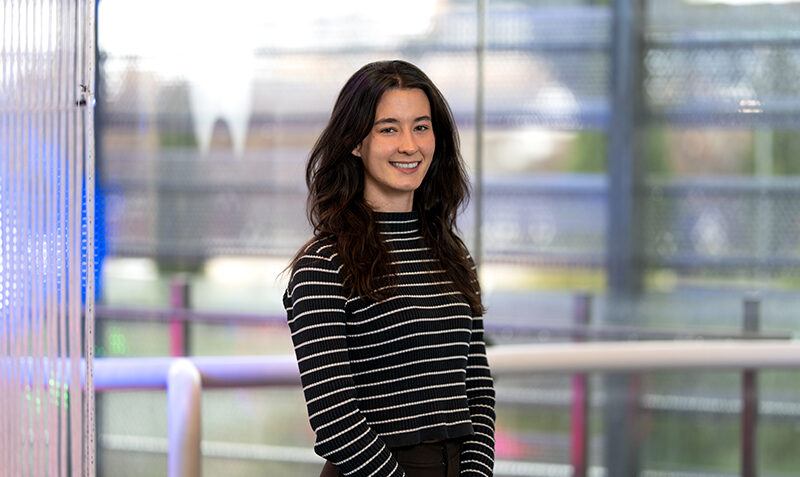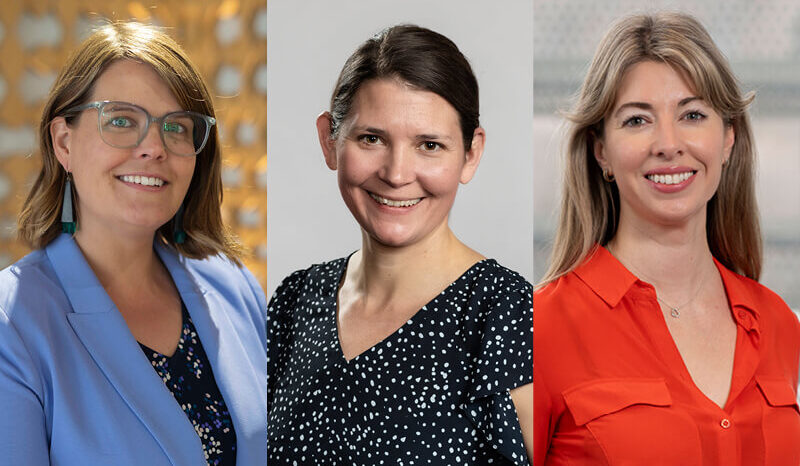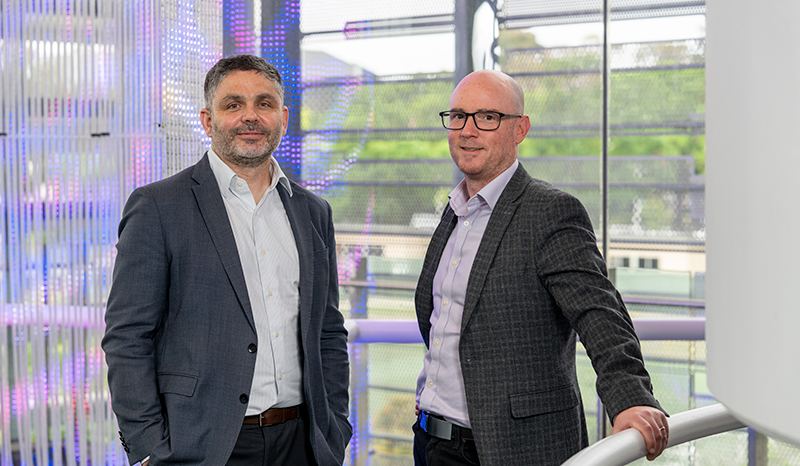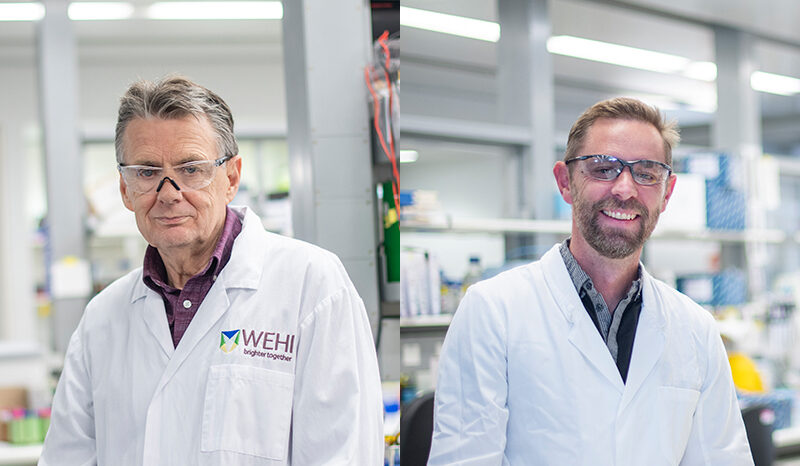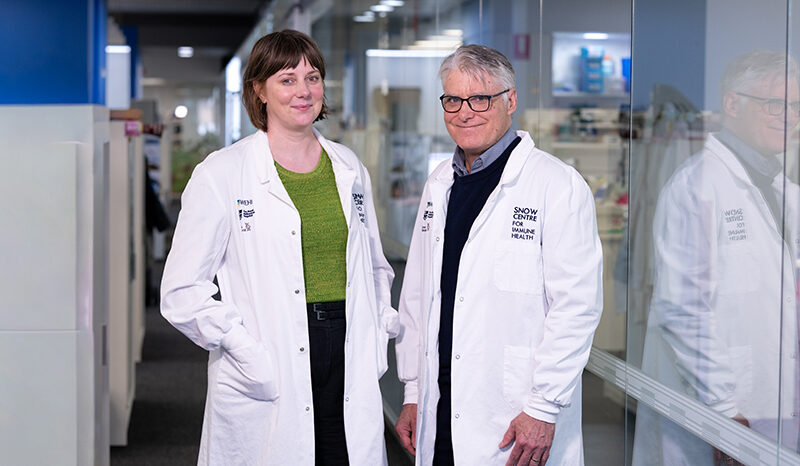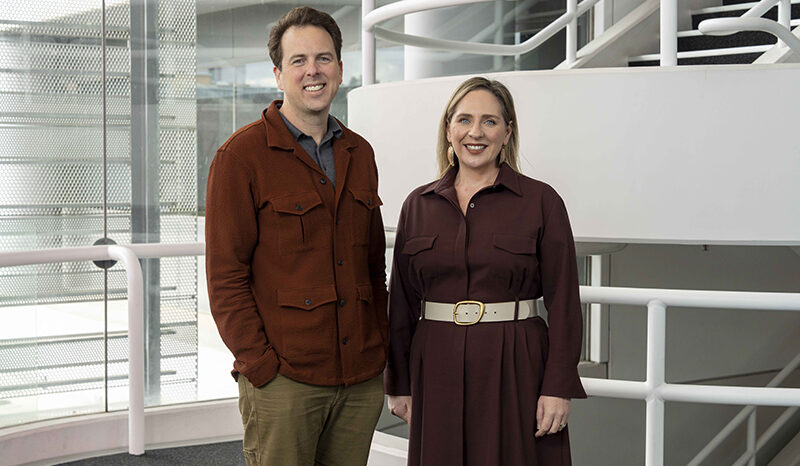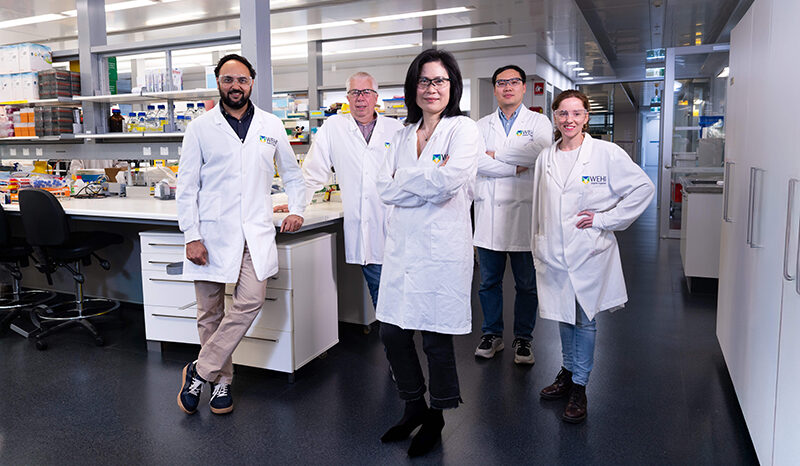Originally from New Zealand, Jacqueline Ormsby is pursuing her PhD at WEHI. She is exploring understudied proteins called ‘dark’ kinases and how they work with another protein, ubiquitin, which helps control things like breaking down proteins and fighting infections. These insights help us better understand how cells send and control signals.
I love being a scientist at WEHI because… I get to have the opportunity to discover new things, help people and collaborate with amazing minds within the scientific community. It’s such a privilege to be in the line of work that I am so passionate about.
The thing that gets me out of bed in the morning is… being able to work towards helping people through my research. Additionally, it’s amazing to be doing this research alongside people that are supportive and fun to be around.
When I meet someone new, I explain what I do as… a researcher working on kinases. Kinases are proteins that act like switches in our cells, controlling processes from growth to fighting infections. When they malfunction, they can cause diseases like cancer or autoimmune disorders. Part of my PhD is looking at a kinase called RIOK3. Although its exact role isn’t fully understood, it appears important for the immune system and breaking down proteins. My goal is to continue to unravel what RIOK3 does in our cells.
The most inspiring people I’ve met at WEHI are… my supervisors David Komander (head of the Ubiquitin Signalling division), James Murphy (deputy director at WEHI), and Chris Horne (senior researcher, Inflammation). I’m fortunate to work across two divisions at WEHI, allowing me to have access to a wide range of expertise and cutting-edge techniques.
What I love about ubiquitin signalling is… that the field of research is so broad and there is so much that remains unknown. I’m lucky enough to also be involved with other areas of research at WEHI due to the breadth of expertise within my supervisory team, which provides an invaluable interdisciplinary lens to my investigation.
The thing I’m proudest of is… winning the Three Minute Thesis competition only two months into my PhD. This is an internal competition for students to explain their PhD in a lay and engaging manner with only one PowerPoint slide.
One of the biggest challenges I’ve overcome was… being diagnosed with dyslexia and learning to navigate it. My diagnosis changed how I approach research and solve problems in the lab, but I’ve since learnt to harness the unique way my brain works and turn it into one of my greatest strengths.
When I’m not in the lab, I like to… run! I’m into anything active, so I go to the gym a lot. I just finished an ultramarathon in New Zealand!


